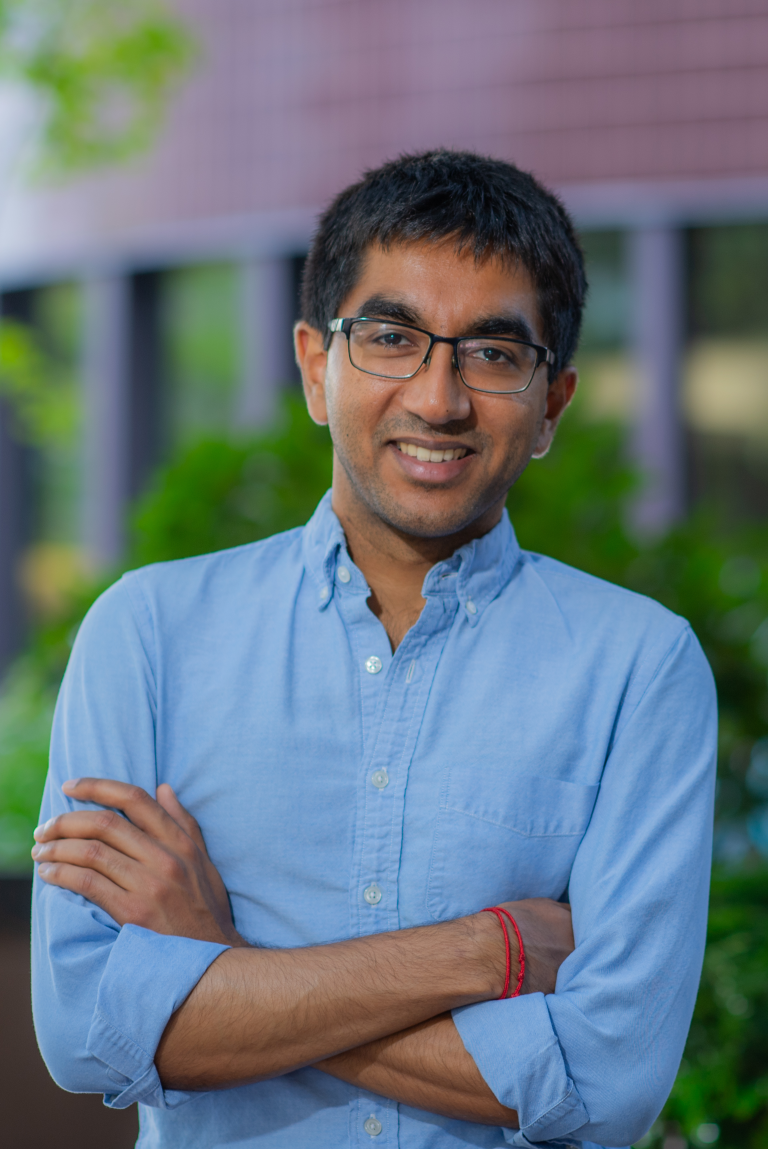Aditya Raguram
The Raguram Lab studies how to deliver therapeutic molecules into cells within the body.

Achievements & Honors
Research Areas
Affiliations
Question
How are large molecules like proteins and RNAs transferred between cells, and how can we use these transport processes to deliver therapeutic molecules into diseased cells?
Approach
Many emerging therapeutic strategies employ macromolecules, like proteins or RNAs, that mitigate disease by manipulating other molecules inside cells. Because these macromolecules act within cells, they must be delivered into specific diseased cells in order to exert therapeutic effects, a feat which has historically been challenging. The Raguram Lab studies the cellular processes involved in macromolecular delivery to enable next-generation approaches for delivering therapeutic macromolecules into cells within the body.
As a graduate student, Raguram developed several molecular technologies for precision genome editing and protein delivery. Most recently, he co-invented a new method for delivering genome editing proteins into cells using engineered virus-like particles. These protein-based nanoparticles use modified viral capsids to package desired cargo proteins instead of viral genomes, enabling safer delivery and reduced toxicity compared to standard viral vectors. Raguram and his collaborators showed that these engineered particles could safely and efficiently deliver genome editing proteins into several tissues in mice and could be used to treat mouse models of genetic blindness and hypercholesterolemia.
Raguram continues to be interested in how to improve the delivery of macromolecules into specific cell types within the body. At Whitehead Institute, the Raguram Lab studies delivery mechanisms that can transfer macromolecules from one cell to another, with a focus on processes involving membrane-enveloped vesicles. These vesicles are natural delivery vehicles that are secreted by many different cell types, can package diverse molecular cargos, and can deliver their contents into recipient cells. The Raguram Lab aims to learn from how cells naturally transfer macromolecules in order to improve existing delivery modalities or develop completely new types of delivery vehicles. These advances in macromolecular delivery could enable better treatments for genetic disorders and a wide range of other conditions that could be addressed with therapeutic macromolecules.
Bio
Raguram earned an A.B. in Chemistry and Physics in 2018 from Harvard College. His undergraduate research spanned molecular, chemical, and computational biology at the Singapore-MIT Alliance for Research and Technology (Singapore), the MRC Laboratory of Molecular Biology (Cambridge, UK), and the Broad Institute of MIT and Harvard. Raguram subsequently earned a Ph.D. in Chemical Biology in 2023 from Harvard University, under the mentorship of Prof. David R. Liu. He joined Whitehead Institute in 2023 as a Whitehead Fellow.